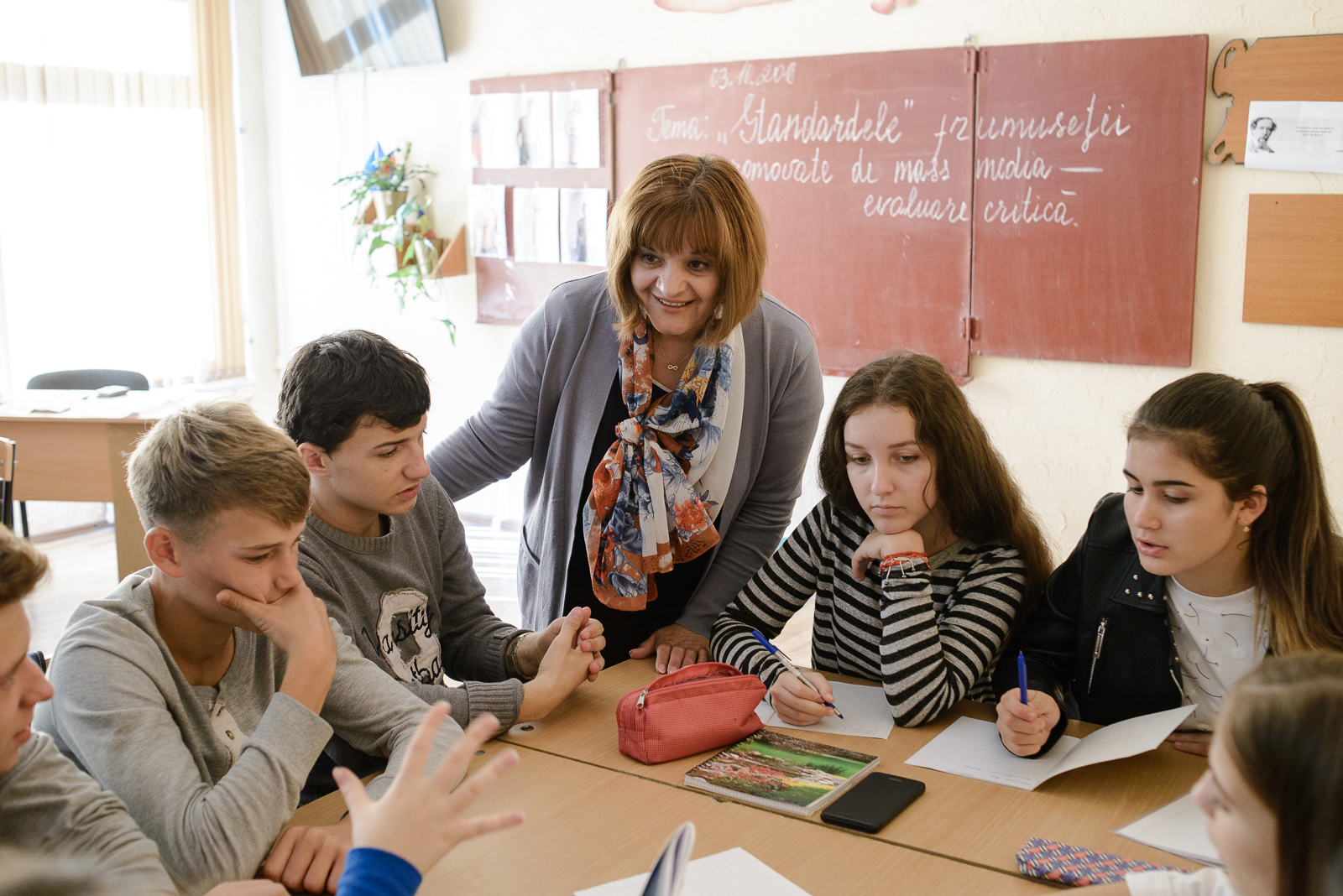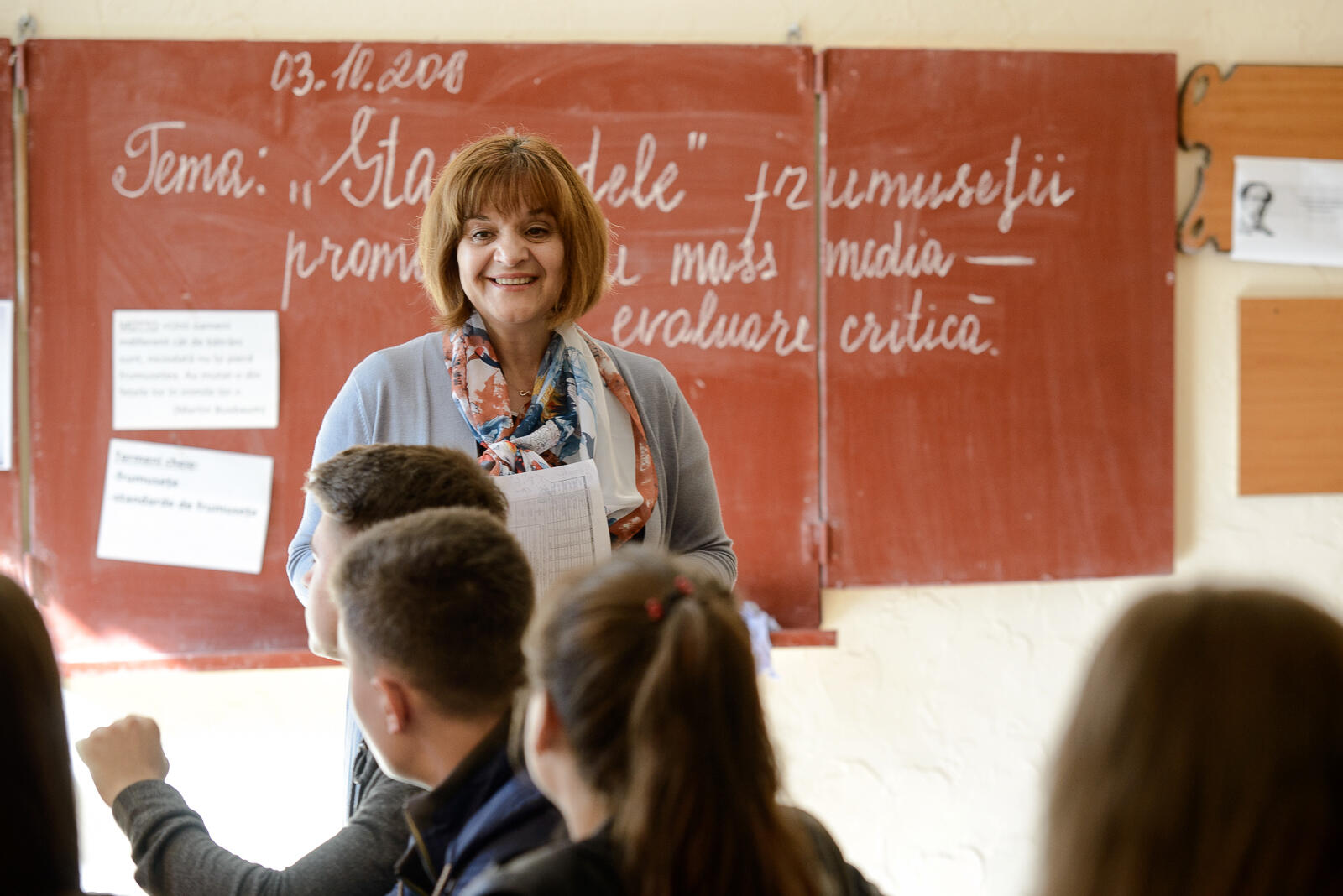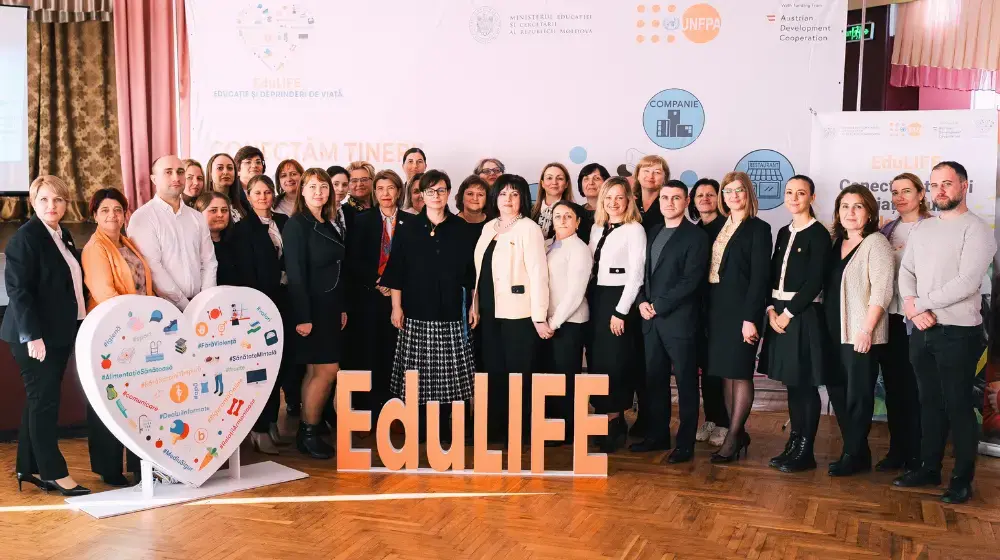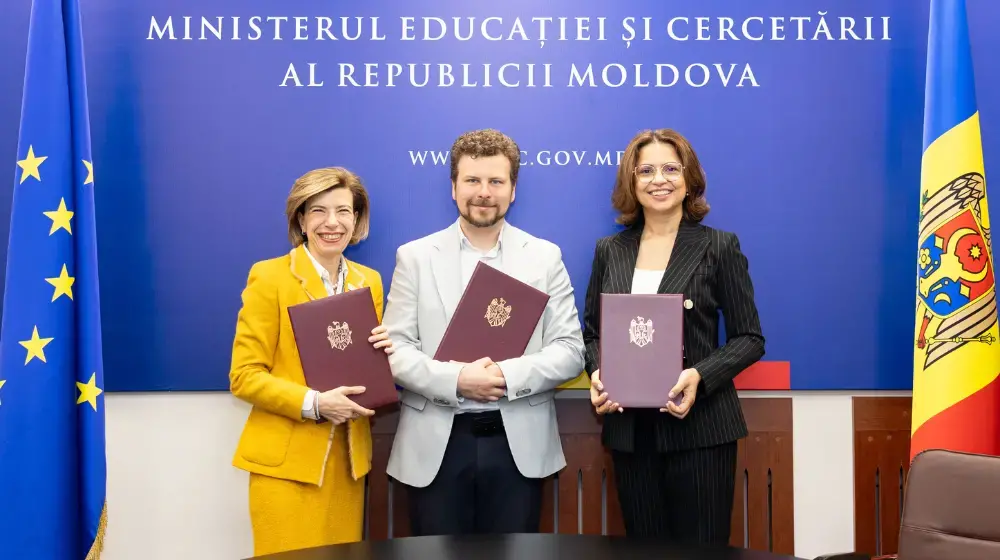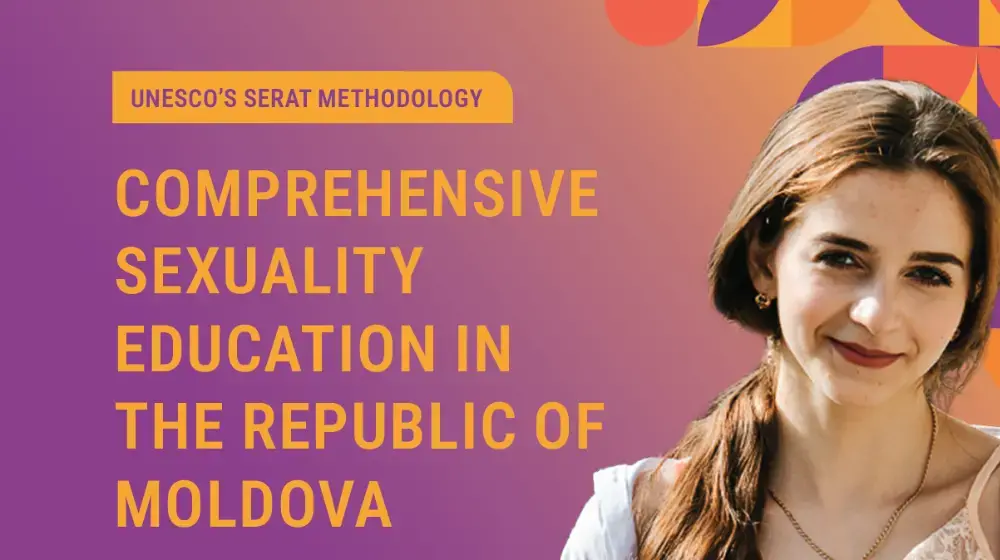October 5, CAHUL - "Are the beauty standards imposed on us by media correct or not?" This question, addressed by teacher Ludmila Culidobri, rounds up a lesson of "Health Education" at the Theoretical High School "Ion Creangă" in Cahul, South of Moldova.
Answers from the 9th Grade pupils follow immediately and discredit the myths of unhealthy beauty standards that are so strongly promoted by the majority of women’s magazines.
"Physical beauty is not everlasting, but the inner beauty stays throughout our entire lives," a girl says. "Every person is beautiful in his/her own way and the most important thing is learning how to accept ourselves as we are," says another adolescent.
The lesson, which just ended, did not bore the students. They talked about hygiene and body changes in adolescents, something they’ve learned during the past lesson, brainstormed on the current topic, watched a movie about the changes in beauty standards over time, worked in groups, and even improvised a short play.
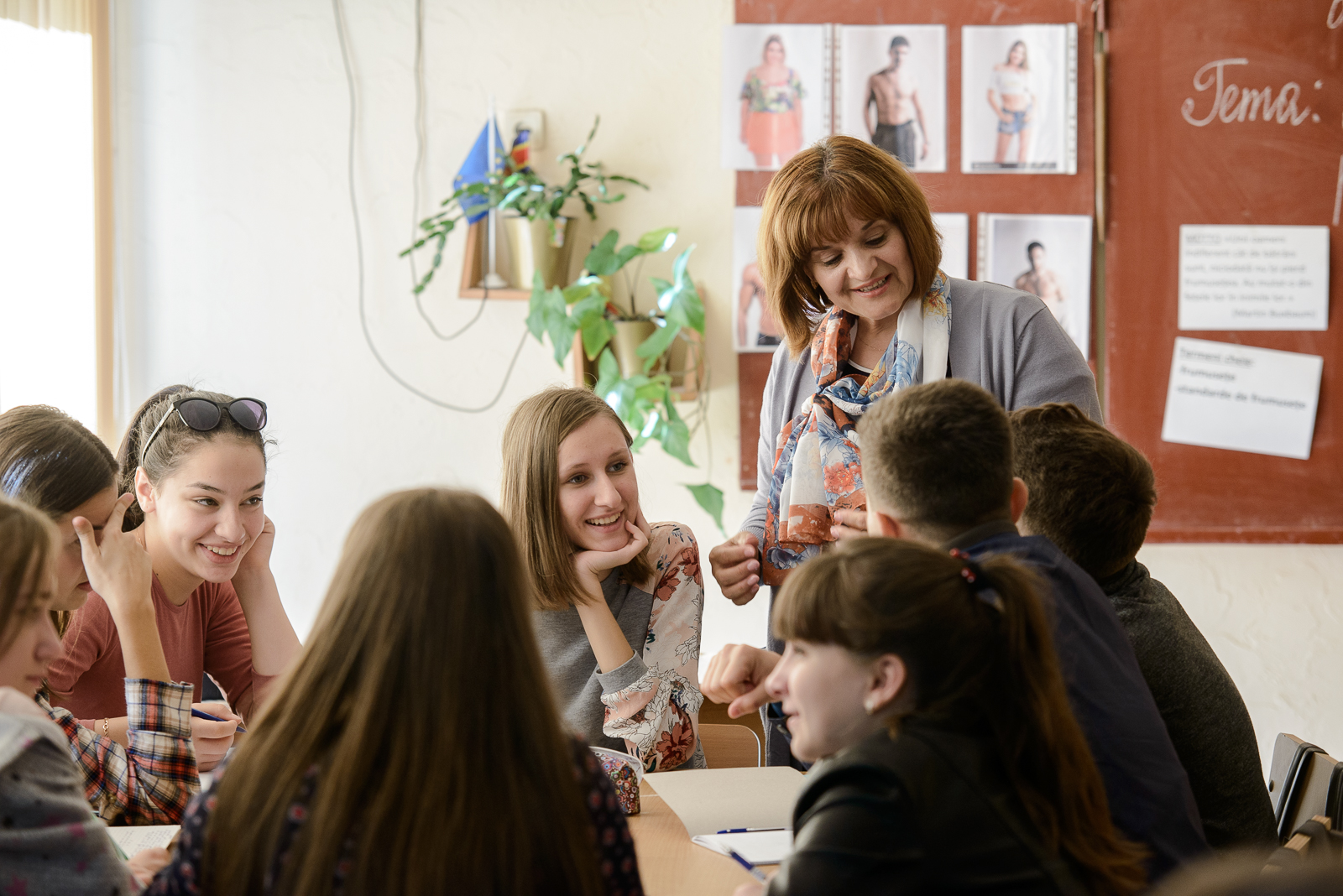
Ludmila Culidobri, a biology and health education teacher manages to impress them every time, because of her rich experience in this field and a predisposition to this topic. ‘It’s a subject where you get a lot of knowledge and useful life skills’, she says.
"The main interest - relationships between girls and boys"
At the "Ion Creangă" High School in Cahul, the optional discipline "Education for Health" is being taught in the 9th, 10th and 11th grades for the second year in a row. Lessons take place once a week, and students learn how to protect their health, including reproductive health, what are the changes happening in the bodies and minds during puberty, the importance of sports and healthy nutrition, how to prevent violence and abuse and build effective relationships with others.
For Ludmila Culidobri these topics are not new. She taught this course in the early 2000s, in one of the village schools where she worked until recently. At that time, just like today, students and parents were equally interested in this field of study.
"I was a 10th grade master teacher and one of the boys in my class was dating a girl from the 6th grade. After one of the meetings with parents, the boy's mother approached me and asked "Please talk to them about all the potential risks…. I'm afraid that something might happen there. Of course I talked to the boy, but also to the entire class. Now the two are married and have a happy family."
Even though this happened nearly 20 years ago, adolescent issues are the same today, and communication with parents on this subject remains sensitive.
The teacher says she made an anonymous questionnaire for pupils at the beginning of this year to better understand their expectations from the course. When she analyzed the answers, she realized that the main concern was the relationship between girls and boys, sexuality and even the menstrual cycle.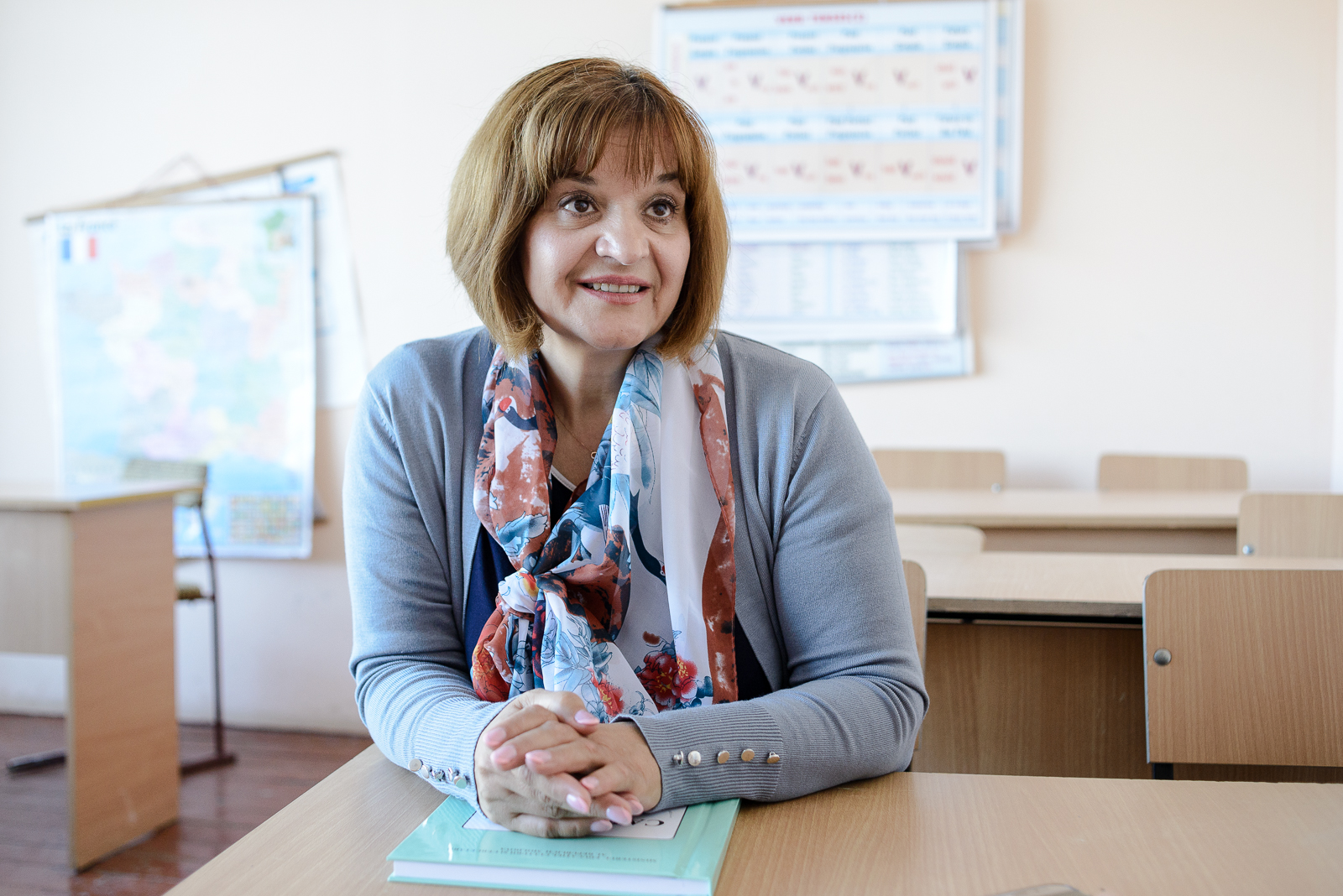
"I find that some mothers do not even talk to their daughters about the menstrual cycle, which in some cases starts when they are 11 years or even earlier and takes the young girls by suprise."
Therefore, Ludmila Culidobri believes that health education should be introduced in as many schools as possible in our country to help teenagers cope easier with adolescence, the most dangerous and changing period of their lives."Education for Health" - at choice
Despite these realities, the "Health Education" discipline is optional and is taught sporadically only for pupils who have selected it, thus not ensuring systematic learning in this area.
Last year, for example, only 7% of young people chose to study it, therefore additional efforts are required to promote it among students and parents.
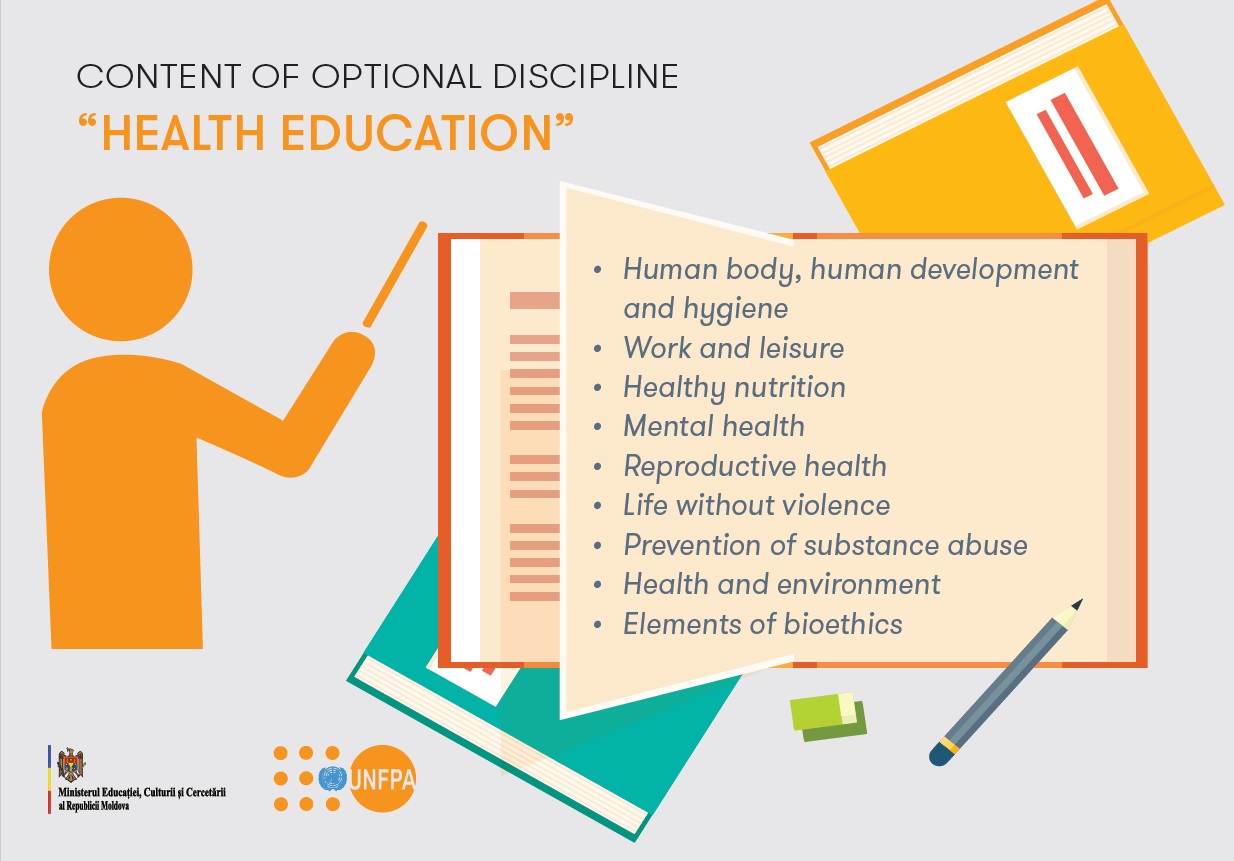
Starting with the current school year in 22 schools from five districts of the country (Chisinau, Cahul, Rezina, Falesti, Orhei), health education lessons are made more interesting because they are taught by an improved curriculum, while teachers, including Mrs. Culidobri, use interactive teaching techniques, after they took an advanced training course in this field.
All these activities are being carried out under the project "Promoting youth health education", with the support of UNFPA Moldova and the Embassy of the Netherlands, at the initiative of the Ministry of Education, Culture and Research, which aim to improve the quality of health education in schools and to respond to the development needs of young people.
Ludmila Culidobri is very happy that her school has been selected to take part in this initiative, and girls and boys from Cahul will enjoy a safer start in their adulthood life.
"I often tell my pupils: When you leave school, you will forget the math, chemistry and even biology formulas that I taught you, but what you learned at health education you will remember all your life", the professor affirms.
